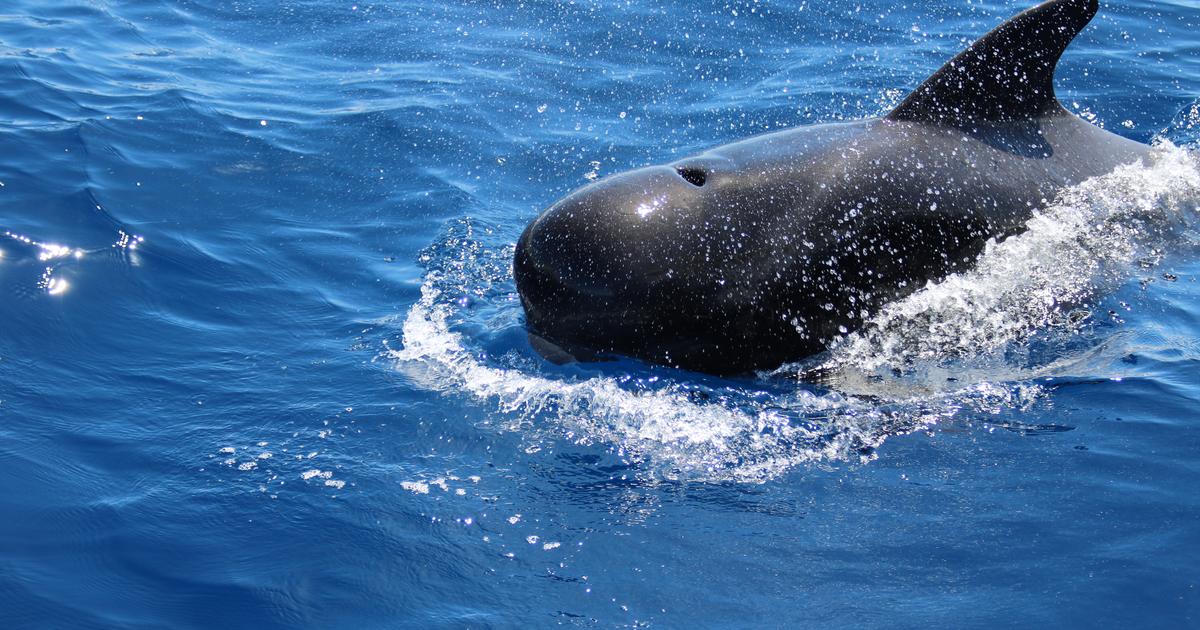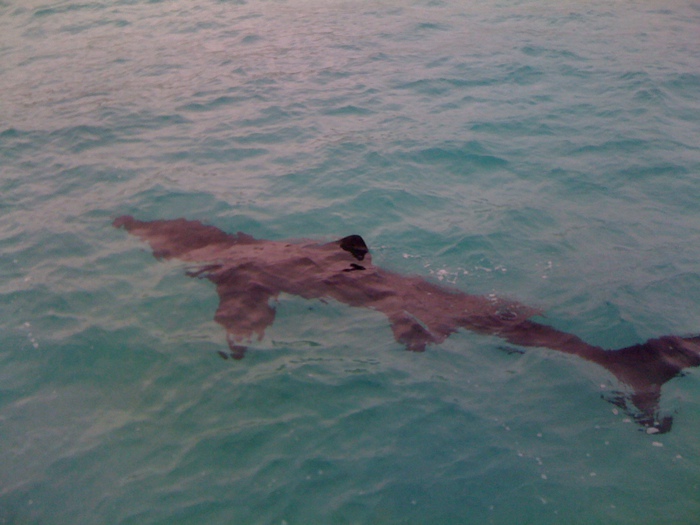Icon: enlarge
A fin whale in the Mediterranean: experts assume 3000 specimens in the western Mediterranean
Photo: N. Pierantonio / Tethys
If you stand on the coast of the Mediterranean, you will hardly notice that numerous marine mammals such as sperm or fin whales cavort in its waters.
“Lots of people don't know about it, even here in Italy.
They are always completely amazed when you tell them about it, «Maddalena Jahoda from the Tethys Research Institute based in Milan tells SPIEGEL.
Jahoda and her colleagues usually travel from the port of Sanremo in the two-master "Pelagos".
For more than 30 years, the organization has been taking paying guests out to sea, helping the whale researchers with their work - and learning more about the giant marine mammals in the process.
An international sanctuary measuring 87,000 square kilometers was set up for the animals a good 20 years ago.
It is located between the coasts of the Côte d'Azur in France, Liguria and Tuscany in Italy and the north coast of Sardinia.
The French island of Corsica and the small coastal sea of Monaco are completely included.
Tethys is regularly out and about in a third of them.
The huge carcass of a female fin whale that has now emerged in the Gulf of Naples is a reminder of the marine diversity that romps about in the waters - and how little researchers and environmentalists know about it to this day.
The question of how many fin whales there are in the region is already a challenge.
Several thousand specimens of the second largest animal on the planet live in the Mediterranean, but even experts do not know the exact number.
"It's not easy to estimate," says Jahoda.
Based on overflights of the area, however, it is assumed that there are 3000 fin whales in the western Mediterranean.
The data are still unpublished.
The International Union for Conservation of Nature (IUCN), in whose Red List the fin whale is classified as endangered, suspects a total of 5000 animals in the entire Mediterranean area.
Environmentalists assume 40 fatal collisions per year
The fin whales dive up to 200 meters deep and can stay under water for up to 15 minutes in search of food.
According to genetic studies, researchers assume that the animals in the Mediterranean form their own subpopulation.
They are unlikely to mix with their multi-group relatives who live in the rest of the world's oceans and migrate thousands of kilometers there.
Icon: enlarge
A fin whale on a dive off the Italian coast that can last up to 15 minutes
Photo: Doug Perrine / Nature Picture Library / imago images
The fin whales in the Mediterranean also evidently migrate to the rhythm of the seasons, although not very much is known about that.
In winter, it seems, the animals also like to roam off the North African or Spanish coast, in summer they tend to be in the protected area.
In addition to the fin whales, sperm whales, pilot whales and various dolphins also live there.
Most of them are probably not doing well.
"There are so many dangers," says Jahoda.
There have been repeated reports of whales being injured when they collide with ships.
The extremely busy port of Genoa, for example, is located in the protected area.
Cargo ships, ferries and cruise giants can all pose a threat to animals.
The environmental organization WWF assumes 40 fatal collisions per year.
Last summer, for example, a fin whale without a tail flick made headlines that had covered 900 kilometers between Greece and Sicily within eight days.
Perhaps the animal was so badly injured not only in a ship collision, but also by fishing gear.
Jahoda says she watched the animal many times.
It was probably mutilated twice.
The last time the whale was spotted off the French coast near Toulon at the beginning of July last year, it was very emaciated and weakened.
"We all think he's dead now."
500 shipping containers of plastic waste per day
The rubbish also causes problems for the animals.
According to an IUCN report, 200,000 tons of plastic end up in the Mediterranean every year.
That is 500 shipping containers full - per day.
After breaking into smaller and smaller particles in the wind and waves, large parts of it are deposited in the sediment in the form of microplastics.
This is a problem for fin whales, which eat up to two tons of small crabs and fish a day.
Studies have shown that the fin whales of the Mediterranean are contaminated with so-called phthalates.
Experts suspect that these plasticizers come from microplastics.
There are also reports from other regions of the world that fin whales are harmed by ingesting plastic waste directly.
An autopsy will clarify what the whale found in the Gulf of Sorrento died of.
The Italian coast guard brought the animal to a shipyard in Naples.
The Cetacean strandings Emergency Response Team of the University of Padua is responsible for the investigations.
The experts have already determined a few key data: the carcass is almost 19.70 meters long and weighs 70 tons.
There is no animal in the region that has been measured to be of greater length.
The animal does not seem to have any injuries after a ship collision.
The experts will, among other things, search for whether it was infected with morbilliviruses, whose genus includes canine distemper, measles and rinderpest.
When the research is complete, the whale's skeleton will be prepared so that it can be exhibited in a museum.
In Germany, by the way, fin whale skeletons can be seen in Bremerhaven, Frankfurt, Hamburg, Stralsund and - in parts - on Sylt, because the animals occasionally visit the North and Baltic Seas.
In June, the "Pelagos" will look for whales again in the Mediterranean, says Maddalena Jahoda.
If the coronavirus allows it.
In any case, you yourself are longing to go out to sea again.
"It is something completely different to see these animals instead of just reading about them."
Icon: The mirror









